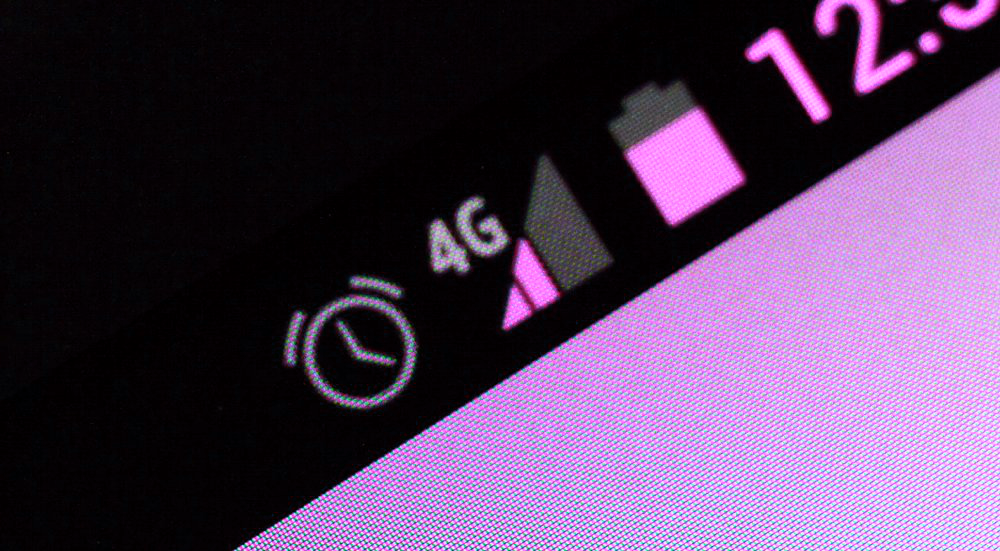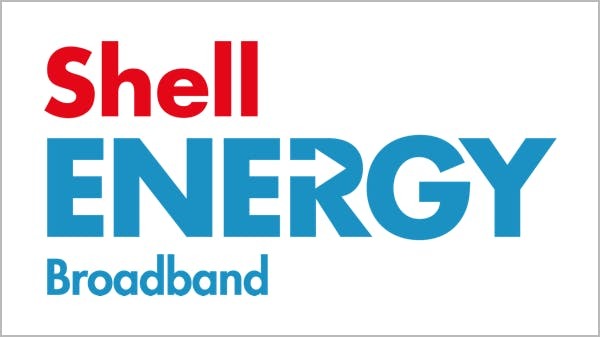What is 4G? Everything about 4G Explained
If you're confused about 4G or mobile broadband in general, this guide will run you through everything you need to know.

When 3G first hit the scene, it allowed mobile devices to access high-speed mobile internet for the first time. Before this, mobile internet services were only advanced enough to provide basic data services. This has now changed with the rise of 4G; the new wave of superfast mobile broadband that allows users to enjoy all the features of Wi-Fi on the go.
So what is 4G?

4G essentially stands for ‘fourth generation communications system’ and it represents an upgrade from 3G by addressing the two major issues with the platform: speed and network congestion. Since it launched in late 2012, the platform has been adopted by all of the major UK phone providers, including Vodafone, 02 and EE.
How does 4G work?
4G works much in the same way as 3G, simply faster. Using high-speed download and upload packets, 4G allows you to access broadband style speeds whilst away from your Wi-Fi. Users can often access speeds of up to 21Mb on the go, but this is, however, affected by location. A larger city, for example, will exhibit faster speeds than a small village.
4G is essentially a highly advanced radio system. You may even have seen masts dotted around the landscape. These masts broadcast the signals necessary for 4G to work and the challenge is for engineers and coders is to cram as much data into these signals as possible. By extension, this means the network is faster and more efficient.
 Like 3G, 4G is a protocol that sends and receives data in packets. However, 4G differs from 3G in how it works. 4G is entirely IP based, which means it uses internet protocols even for voice data. Conforming to this one standard means it is less likely for data to become scrambled while traversing the various networks, meaning a more seamless experience for us users!
Like 3G, 4G is a protocol that sends and receives data in packets. However, 4G differs from 3G in how it works. 4G is entirely IP based, which means it uses internet protocols even for voice data. Conforming to this one standard means it is less likely for data to become scrambled while traversing the various networks, meaning a more seamless experience for us users!
Like all mobile broadband, 4G works through your device communicating with a base station. Base stations are technical speak for the masts that we’ve all seen popping up throughout the country. This mast relays data from your device to the internet and back again.
One of the aspects that makes 4G an upgrade to 3G is its higher capacity. 4G can support a greater number of users, even at peak times. For example, a 3G tower may only be able to give 100 people the best possible connection speed, but a 4G tower can theoretically give 400 people the best service.
4G also features reduced latency, which if you’re a mobile gamer is essential. With reduced latency, you’ll see a much quicker response to your commands. So for gamers, if they are playing a fighting game, for example, this can mean the difference between winning and losing.
Once 4G infrastructures become more common, users will see more seamless streaming on the move from services like YouTube, better video calls and even better battery life. At the moment 4G signals are rarer outside of big cities, so phones expend a lot of energy looking around for a 4G signal.
How fast is 4G?
While 3G only really allowed for emails, maps and Facebook to be readily available, the rise of various technologies such as video calling and HD streaming has called for a faster option. 4G will allow you to do the vast majority of things you can do at home, including browsing YouTube, making calls on Skype and downloading music. As mentioned before, the highest speeds will be experienced in the most populated areas, with remote areas of the UK potentially seeing less of an effect.
A recent study from OFCOM found that the average speed for 4G in 5 major cities was 15.1 Mbit/s. This means that within the cities where the test was carried out, 4G was on average 2.5 times faster than the average 3G speed, which was 6.1Mbit/s. Across all of the networks in the 5 cities that were tested, half of 4G download speeds were above 16Mbit/s, with Edinburgh having the highest average download speed across all the cities that were tested for both 4G and 3G.
OFCOM’s test, although providing valuable insight into the question of how fast 4G actually is, is somewhat flawed due to its use of major metropolitan areas. It is not particularly representative of the experience that the majority of users will have in the UK outside these areas. However, as 4G coverage expands we can all expect to have speeds that fall into this average range.
Does 4G ever get congested?
One of the main criticisms of 3G was that it often got congested with the number of users trying to access it at once. With 17 million of us using our phones to get online every month, it's no wonder that less solid connections get overwhelmed. 4G can handle a much higher volume of traffic, so there’s less chance of slower speeds at peak times.
What are the advantages of 4G?
4G comes with many advantages that put it above 3G and make it fast and easy to use. The increased speed is an obvious one, but it represents the most important. Ease of use is also a major draw of 4G, with users not having to plug into any proprietary system in order to get online.

4G is also much more secure than using public WiFi spots. Whenever you log into an unknown public WiFi spot, there is a chance your device and your information are vulnerable to attack. 4G networks offer better privacy, security and safety: all factors that are especially appealing to business users as well as those of us who shop on the move.
Increasing 4G coverage also means that you are no longer tethered to the nearest coffee shop! As more masts go up it becomes far more likely that mobile internet users simply move from one 4G area to another, with less reliance on public WiFi.
Are there any disadvantages to 4G?
The occasionally patchy coverage outside of urban areas is really the main concern around 4G. If you lose your 4G connection and go into a 3G only area, you are still paying for the 4G connection, so from a user’s point of view, it’s a valid concern if you cannot always use the service that you pay for. Networks like Three have moved around this issue by charging customers the same for 4G as for 3G services, but not all networks have this policy.
If you happen to live in a rural area then it is definitely worth holding onto your money and not taking up a 4G data contract at this stage.
Is 4G worth it?
Mobile providers now offer a number of deals that include 4G, making it cheaper than ever to get connected on the move. When 3G first hit the scene, it added a significant amount to your monthly phone bill. This, however, has changed as mobile broadband has become the norm, meaning that anyone on a mobile contract has the ability to access 4G.
Should I get 4G? What does it mean for me?
Overall, 4G means a faster speed on the go at a cheaper cost to the consumer. As internet trends continue to change with online messaging and video calling becoming more popular, 4G will only become cheaper and more stable.
 EE currently offers speeds of up to 80Mb and Three have offered to pledge 4G at the same price as 3G, meaning that there’s no reason to embrace the newest generation of fast, mobile internet.
EE currently offers speeds of up to 80Mb and Three have offered to pledge 4G at the same price as 3G, meaning that there’s no reason to embrace the newest generation of fast, mobile internet.
But should you get 4G if you have to pay extra for it? If you are a regular mobile internet user and you download files on the move, then you should definitely think about getting 4G. It’ll make a real difference to your mobile internet browsing experience. However, if you are a light mobile internet user who rarely watches videos outside the house or checks social media it may be worth sticking with a 3G connection.
Find a Deal
Last updated on the 31st of October at 2:10am with 141 deals.







